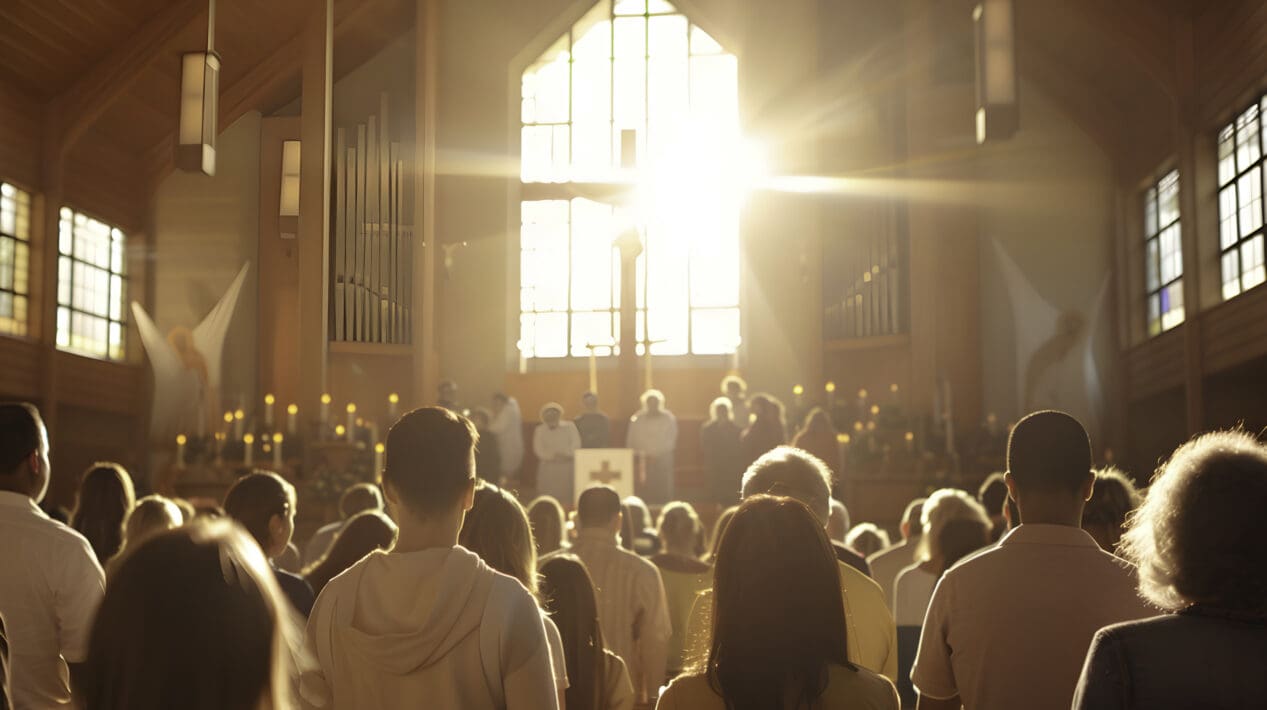
Paul urges the believers to seek unity whenever possible, grow to maturity spiritually, and to love each other always. He warns them to avoid causing others to stumble.
These are only preliminary, unedited outlines and may differ from Andy’s final message.
Romans 14:1-12 Accept him whose faith is weak, without passing judgment on disputable matters. 2 One person’s faith allows him to eat everything, but another person, whose faith is weak, eats only vegetables. 3 The one who eats everything must not look down on him who does not, and the one who does not eat everything must not condemn the one who does, for God has accepted him. 4 Who are you to judge someone else’s servant? To his own master he stands or falls. And he will stand, for the Lord is able to make him stand.
5 One person considers one day more sacred than another; another considers every day alike. Each one should be fully convinced in his own mind. 6 He who regards one day as special, does so to the Lord. He who eats meat, eats to the Lord, for he gives thanks to God; and he who abstains, does so to the Lord and gives thanks to God. 7 For none of us lives to himself alone and none of us dies to himself alone. 8 If we live, we live to the Lord; and if we die, we die to the Lord. So, whether we live or die, we belong to the Lord. 9 For this very reason, Christ died and returned to life so that he might be the Lord of both the dead and the living.
10 You, then, why do you judge your brother? Or why do you look down on your brother? For we will all stand before God’s judgment seat. 11 It is written: “‘As surely as I live,’ says the Lord, ‘every knee will bow before me; every tongue will confess to God.’” 12 So then, each of us will give an account of himself to God.
13 Therefore let us stop passing judgment on one another. Instead, make up your mind not to put any stumbling block or obstacle in your brother’s way. 14 As one who is in the Lord Jesus, I am fully convinced that no food is unclean in itself. But if anyone regards something as unclean, then for him it is unclean. 15 If your brother is distressed because of what you eat, you are no longer acting in love. Do not by your eating destroy your brother for whom Christ died. 16 Do not allow what you consider good to be spoken of as evil. 17 For the kingdom of God is not a matter of eating and drinking, but of righteousness, peace and joy in the Holy Spirit, 18 because anyone who serves Christ in this way is pleasing to God and approved by men. 19 Let us therefore make every effort to do what leads to peace and to mutual edification. 20 Do not destroy the work of God for the sake of food. All food is clean, but it is wrong for a man to eat anything that causes someone else to stumble. 21 It is better not to eat meat or drink wine or to do anything else that will cause your brother to fall. 22 So whatever you believe about these things keep between yourself and God. Blessed is the man who does not condemn himself by what he approves. 23 But the man who has doubts is condemned if he eats, because his eating is not from faith; and everything that does not come from faith is sin.
Key issues in the chapter:
§ Gospel unity among different believers… UNITY
§ Gospel freedom from legalism & judgmentalism… MATURITY
§ Gospel holiness… PURITY
I. Main Questions:
1. How does this section unfold a godly vision for unity in the church?
2. Why should Christians be concerned about the stumbling blocks we put in front of other Christians?
3. How does this section call on Christians to put others ahead of their own freedoms: “love limits liberty”?
4. How is verse 23 a vital verse in the Christians life?
5. Hardly any Christians struggle with the morality of eating meat sacrificed to idols. But what are some modern-day issues that we do face for which this section of Scripture will be helpful?
II. Verse by Verse Questions:
1. Verse 13 begins with the word “Therefore.” How does verse 13 connect with what precedes? Simply put, how does the fact that all of us will appear before the judgment seat of God help us to stop judging others? (13)
2. What is a “stumbling block” (as in verse 13)? How do Christians put stumbling blocks in front of other Christians? (13)
3. What issue does Paul bring up as an example of the kinds of “debatable issues” he has been dealing with in this chapter? Why was the issue of meat sacrificed to idols such a flashpoint back then? What does it show you that it is not an issue today? (14)
4. Paul says he is “fully convinced” that no food is unclean in and of itself? What does this mean? How does this relate to Mark 7:19 in which Jesus declared all foods clean and Acts 10:15 in which Peter is told (concerning food) “Don’t call anything impure that God has made clean”? How does Paul’s strong conviction here help to move the “weak brothers” of this chapter along to a more mature faith? (14)
5. What else does Paul say in verse 14, though? Is the second half of verse 14 describing the “weaker brother” of verse 2? Based on verse 14, how can it be that God could consider a food clean, but also judge someone for eating it as though that person were violating the food laws that are now obsolete? (14)
6. What additional issue does Paul bring up in verse 15? How are we beholden to someone else’s weak faith or weak conscience? How would a mature Christian boldly eating meat sacrificed to idols in front of a person who thinks its sinful to do it “destroy” him as a brother? (15)
7. What does verse 16 teach us about this situation? How would something that one brother considers good be spoken of as evil? How does that create conflict in the church? (16)
8. Verse 17 is a very powerful and sweeping statement about life in the church of Jesus Christ. What does it teach? How does it put eating and drinking in proper perspective? (17)
9. What is the significance of the phrase “righteousness, peace, and joy in the Holy Spirit”? (17)
10. What kind of behavior or service to Christ does Paul commend in verse 18? (18)
11. How is verse 19 an excellent guideline for the church as a whole when it comes to “debatable issues”? (19)
12. What is “mutual edification”? How is it the opposite of the “destruction” Paul mentions in verse 15? Or even the destruction of the next verse—verse 20? (19-20)
13. Why do you think Paul restates the lesson, “All food is clean”? What does this teach you about “debatable issues”? (20)
14. What does Paul say is wrong in verses 20-21? (20-21)
15. Is there a reasonable limit to how much we should let someone else’s “weak faith” and legalistic convictions modify our behavior? (20-21)
16. What does verse 22 command? Why do you think it is important to keep it between yourself and God? (22)
17. What does “Blessed is the one who does not condemn himself in what he approves”? (22)
18. How does verse 23 probe the heart of someone on a disputable matter? What does it mean if someone’s eating is not “from faith”? (23)
19. How could verse 23 be one of the key verses in the Christian life for daily ethics? (23)
20. How does verse 23 teach that non-Christians will have no good works to show God on judgment day? (23)
III. Summary:
Paul concludes his teachings to the church at Rome to keep harmony and not divide on disputable matters. He commands that the church not pass judgment on each other, grow into mature faith, and not put stumbling blocks in front of each other.







